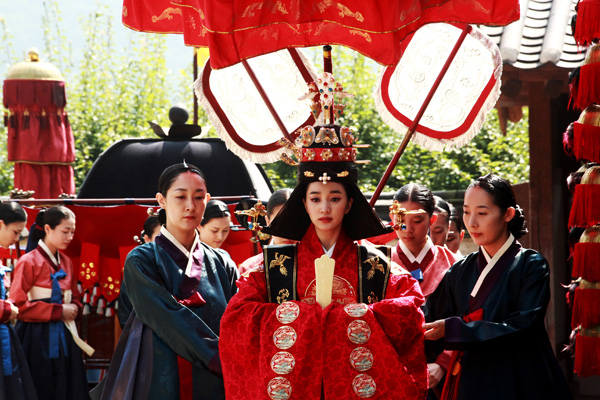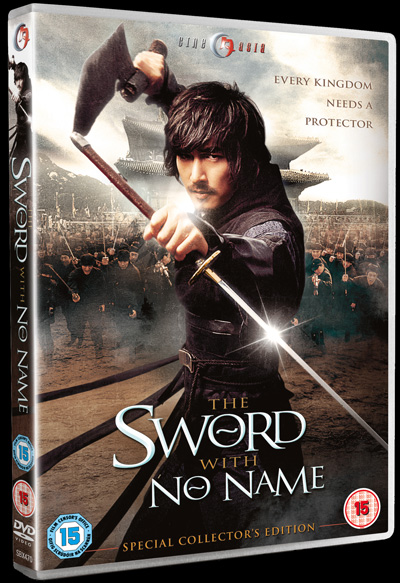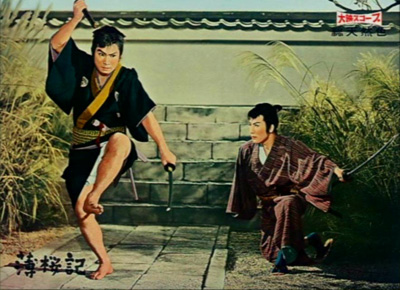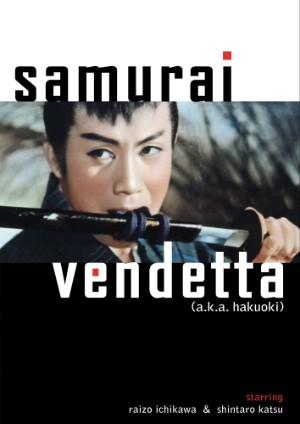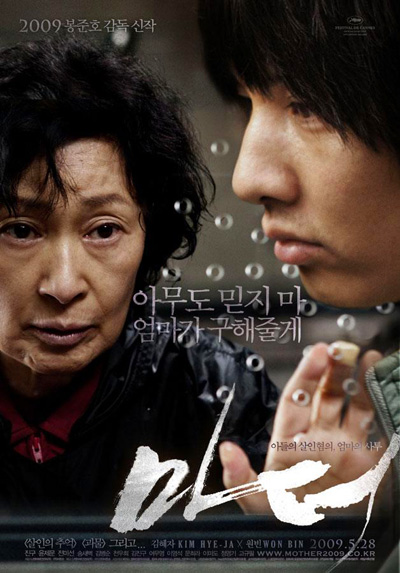 Sometimes, in anticipation of a film, it's possible to over-hype it to yourself, play it up in your mind until, when you finally see it, you're disappointed that it didn't live up to your overheated expectations. Such was the danger with Tokugawa Sex Ban: Lustful Lord (1972), a film I've wanted to see for nearly a decade. I needn't have worried, though; this is one of those films that defies expectations.
Sometimes, in anticipation of a film, it's possible to over-hype it to yourself, play it up in your mind until, when you finally see it, you're disappointed that it didn't live up to your overheated expectations. Such was the danger with Tokugawa Sex Ban: Lustful Lord (1972), a film I've wanted to see for nearly a decade. I needn't have worried, though; this is one of those films that defies expectations.Made by ace Toei director Norifumi Suzuki, it is the story of a sexually inexperienced daimyo (Hiroshi Nawa) who, in 1825, finds himself compelled to marry one of the shogun's many daughters and, oh no, consummate the marriage. Displeasing the shogun is not an option, and the lord's ministers are determined that their boss delivers the goods. They get the lascivious Hakataya (Fumio Watanabe), a samurai well versed in the ways of the flesh, to turn him out. After a three-day intensive with a bevy of multi-racial beauties (including sizzling French import Sandra Julien) and a whole lot of hot sex, our daimyo is transformed into the eponymous horny lord. He becomes sex mad, and, resentful of the rest of his subjects who've been having it off all along, he prohibits everyone else from engaging in his newfound pleasure. Every man must have his member stamped with an official seal; if it's found to have rubbed off, the whole thing must come off. Yikes! Meanwhile, the lord keeps on bonking.
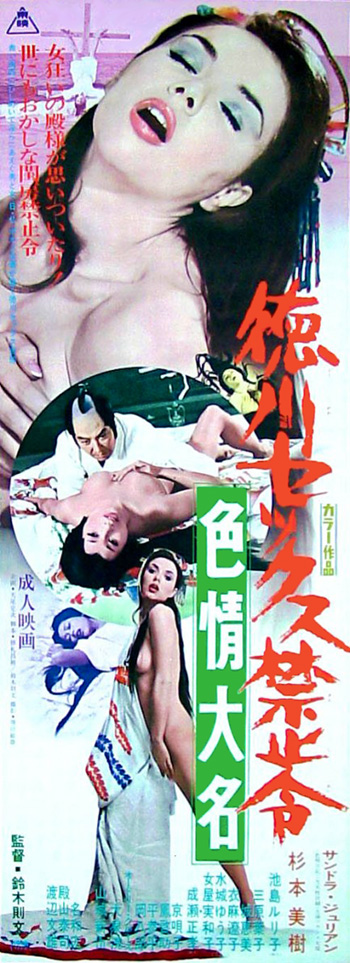 It's truly remarkable how explicit a film like this can get without ever showing penetration or even genitalia. Suzuki was a master of this type of film, and Tokugawa Sex Ban: Lustful Lord ranks right up there with his nunsploitation classic Convent of the Sacred Beast (see my review of the latter in Asia Shock). Sex and violence are so perfectly intermingled you'll likely become alarmed at how much you're enjoying it. Suzuki's supreme ability lies in seducing the eye before the mind can interfere, allowing the audience to gaze upon rape, torture, giant dildoes and various atrocities and appreciate their artistic merits. I realize how perverse this sounds, but bear in mind the era, the unique flair for S&M that runs through Japanese art and culture and the fact this this is, after all, an exploitation film and not to be taken too seriously. Plus, as I say, Suzuki is an artist and master of the OTT moment; even as people are being beheaded, crucified and castrated, it all works to serve the story rather than being there for mere sensation.
It's truly remarkable how explicit a film like this can get without ever showing penetration or even genitalia. Suzuki was a master of this type of film, and Tokugawa Sex Ban: Lustful Lord ranks right up there with his nunsploitation classic Convent of the Sacred Beast (see my review of the latter in Asia Shock). Sex and violence are so perfectly intermingled you'll likely become alarmed at how much you're enjoying it. Suzuki's supreme ability lies in seducing the eye before the mind can interfere, allowing the audience to gaze upon rape, torture, giant dildoes and various atrocities and appreciate their artistic merits. I realize how perverse this sounds, but bear in mind the era, the unique flair for S&M that runs through Japanese art and culture and the fact this this is, after all, an exploitation film and not to be taken too seriously. Plus, as I say, Suzuki is an artist and master of the OTT moment; even as people are being beheaded, crucified and castrated, it all works to serve the story rather than being there for mere sensation.And the whole affair is frequently played for laughs. When you're not getting aroused, you're laughing your head off, a heady mixture of enjoyments. Frankly, words fail to describe this picture. You really just need to see it, and thanks to the good folks over at kurotokagi.com, now you can. My advice is to click that link and get yourself a copy of this amazing movie.

